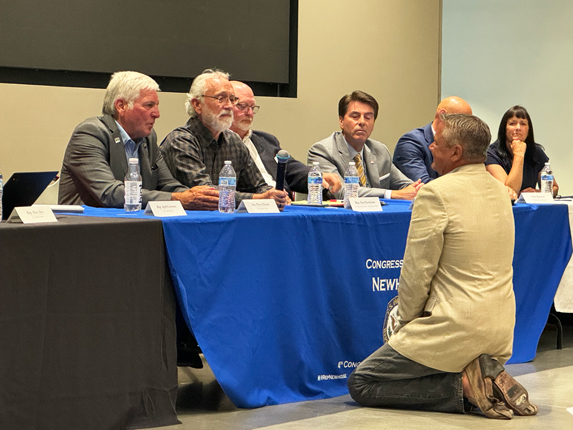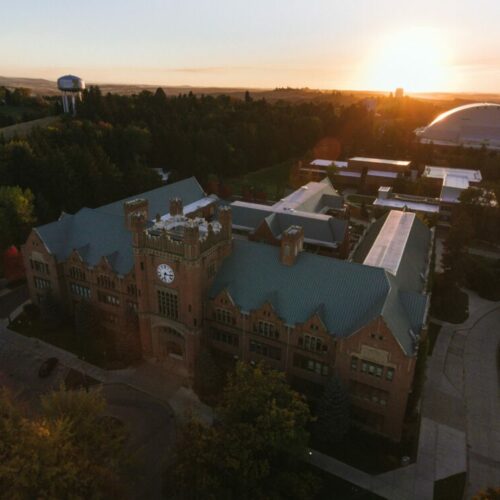
Tri-Cities forum draws support for Lower Snake River dams
Listen
(Runtime 1:21)
Read
In the Tri-Cities, a forum recently drew mostly people who want to keep the Lower Snake River dams in place. They raised some lesser-discussed concerns to local, state and federal representatives.
Nearly 80 people gathered in Richland for a Snake River dams forum hosted by U.S. Rep. Dan Newhouse, a Republican from Washington state. Newhouse hasn’t been quiet in his support for dams and salmon coexisting, although he said he welcomed other points of view.
However, the 10 people on the panel of local leaders all laid out their worries about removing or altering the four controversial dams: the need to replace electricity generation, irrigation access and barging transportation.
Chuck Bender, who said his family members are tugboat operators, fell to his knees in front of Newhouse — pleading to keep the dams, and his family’s income source, as it is.
“They’re hardworking; they sacrifice everything. They travel up all the rivers. If it changed …” Bender said, trailing off into tears, the crowd cheering him on.
Commenters drove from Ritzville and Goldendale, noting it’s not just those along the Snake who would face hardships if the dams come out.
Felton Jenkins, from Klickitat County, said although 96% of juveniles survive dam passages, the effects compound as they swim downstream.
Jenkins also noted no fish advocates were represented on the panel. He added people could present the idea that the services the dams provide could be replaced before the dams are breached on the panel.
“It’s an economic development opportunity,” Jenkins said. “There’d be more jobs for the Tri-Cities and the surrounding communities.”
Several people at the forum spoke of how they remembered when the Snake River dams were built, including state Sen. Perry Dozier, a Republican from Walla Walla.
“When the first (Snake River) dam was built, I was 4 years old. I’ve seen the transformation of western Walla Walla County and southeast Franklin County into some of the most productive farm ground in the world,” Dozier said.
Other concerns raised included the need for more housing that will require more electricity; the increasing amount of electricity needed to run artificial intelligence applications and data centers; and the lack of trucking or railroad infrastructure near ports heading to the ocean.
For his part, Newhouse called this one of the most important decisions in the region, asking the audience to help “educate folks, friends and family on the other side of the state.”
“Spread the word as much as you can,” he said.















